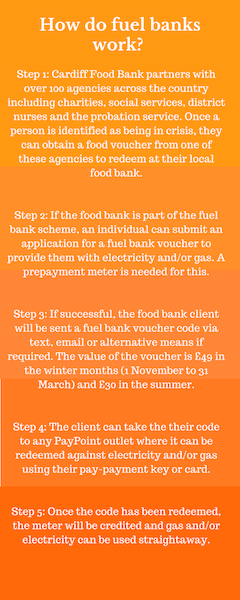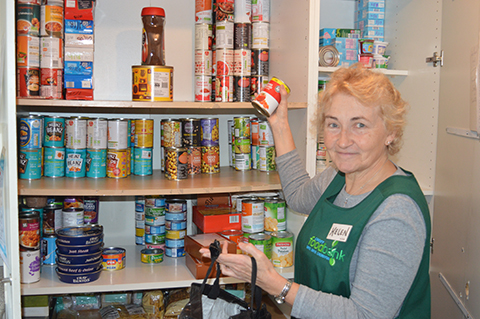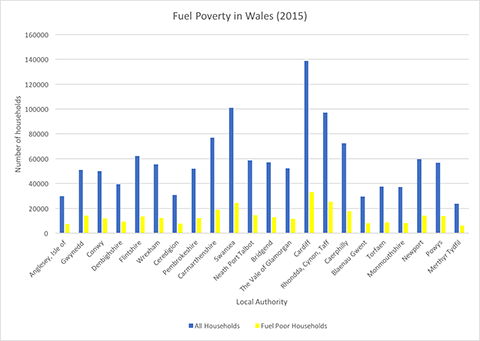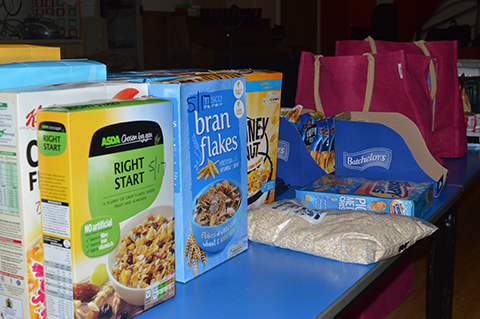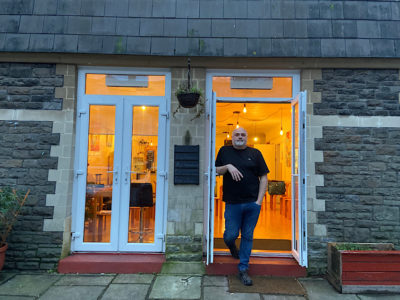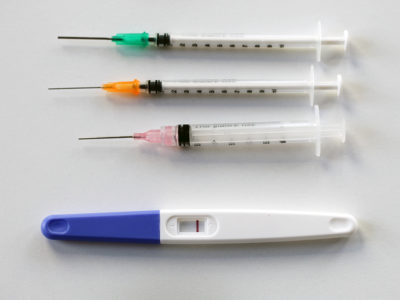Introduced by the Trussell Trust earlier this year, we explore the impact of Wales’s first fuel bank on the capital
“I went round the following day with his food and with the number for the fuel voucher with my son. The flat was in darkness as he’d had no electricity for three days.”
Helen Nolan, a volunteer at Cardiff Foodbank, reflects on a time when she was able to help a young man in desperate need. The experience had a profound effect on her, yet his situation is far from new. According to the most recent statistics provided by the Department of Energy and Climate Change (DECC), approximately 291,000 households in Wales are affected by fuel poverty.
Last April, the Trussell Trust, which oversees the biggest network of food banks in the UK, introduced a new pilot scheme in partnership with npower and National Energy Action (NEA) to tackle the fuel poverty crisis, enabling a select few food banks to offer fuel vouchers. Initially rolled out across four areas with considerable success, the first Cardiff-based fuel bank, located at City Church, was introduced in May this year.
Despite the positive impact that the fuel bank is having on the city, there are concerns. Cardiff food bank centres saw a 60% increase in the distribution of food parcels compared to the previous September, significantly affecting their ability to cope with demand. “We are now getting to the stage where the rate of donation of food is not keeping up with supply,” Helen expresses. “We have to be careful to make sure that food is going to those who need it the most.” Yes, fuel banks are certainly helping people. However, important questions surround exactly who is benefiting and whether such a scheme will be viable in the long run.
What about the government?
In a bid to address Wales’s fuel poverty crisis, the Welsh government introduced Nest, a scheme offering members of the public advice to help reduce energy bills. Over 17,000 households were given free advice last year, with over 6,000 receiving home improvements.
The government has also partnered with the Trussell Trust, holding monthly drop-in sessions at the Carmarthen and Port Talbot food banks for people who may benefit from Nest. Despite this, not all are convinced of government efforts. “Some people have their money sanctioned,” says Josephine*, a food bank user whose friend had her benefits curbed. “It’s the government’s fault that people are in this situation.”
A knight in shining armour
According to the Trussell Trust, the implementation of fuel banks has seen over 32,000 people, including 12,000 children, helped across the UK. People have no longer had to make the difficult choice between “heating and eating” and the benefits have extended to locals right here in Cardiff. Josephine tells of how the scheme threw her a much-needed lifeline: “The food bank saved my life big time. I needed gas and electricity and basically had no food because my money was stopped. I have a little boy as well.”
In spite of the positive impact, the fuel bank scheme has placed increased pressure on volunteers at Cardiff distribution centres. As individuals who wish to obtain fuel vouchers have to first be eligible to receive food, there is some indication that an increasing number of people are only turning to food banks for gas and electricity. “It’s something we’re really looking into because primarily we’re about feeding people, that was the original mission,” Helen voices. “This is making it more difficult for us to feed people because people are coming primarily for fuel vouchers.”
“The food bank saved my life big time. I needed gas and electricity and basically had no food because my money was stopped.”
Notwithstanding, both npower and the Trussell Trust stand by the need for these services to be offered alongside one another, claiming that food and fuel poverty go hand in hand. “By offering the scheme only to food bank clients, we are ensuring that beneficiaries have been assessed by a referral agency to be in crisis and are the people most in need of help,” argues Claire Young, food bank coordinator for the Trussell Trust.
What next?
Some have suggested that the scheme be rolled out across Cardiff in order to provide maximum benefit to local people living in critical states of emergency. Hannah* is a food bank user who was homeless for three months before moving into her flat in November. She is currently using an electric heater to warm up her home and turned to the fuel bank as her last resort. “I think they should be able to do it at every food bank because not everybody can get here if they don’t live locally,” Hannah feels. For some it might be a bus ride away; what if you don’t have bus fare? Or some people are disabled so they can’t get here.”
Fuel poverty is a big problem in Cardiff. Here’s Hannah’s story.
Helen, the selfless volunteer coming to the aid of the young man living in darkness, Josephine, who reached out to the fuel bank as a desperate measure not only for herself but also her young son and Hannah, finally living in her own flat and in need of heating to make it a cosy home, undoubtedly show that there are people in our city suffering from the harsh effects of fuel poverty. The scheme’s imperfections are evident and the need for reevaluation is clear. Its importance in our society at present, however, is unquestionable.
(*Names have been changed to protect identities)
To find out more about the work of Cardiff Foodbank, check out the articles below:
Local band rocks out for food bank gig
Food banks need more donations

